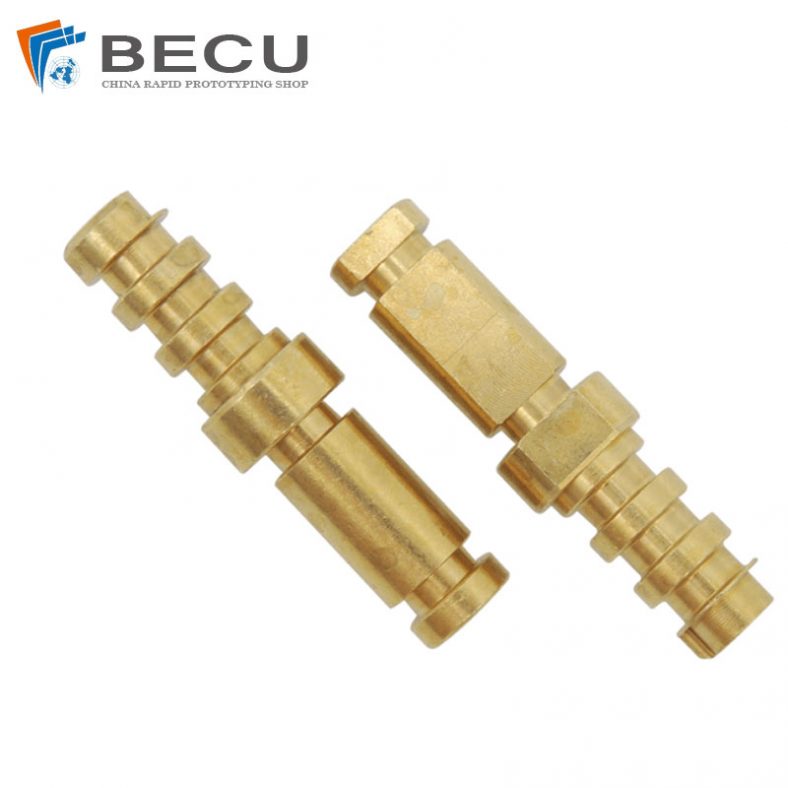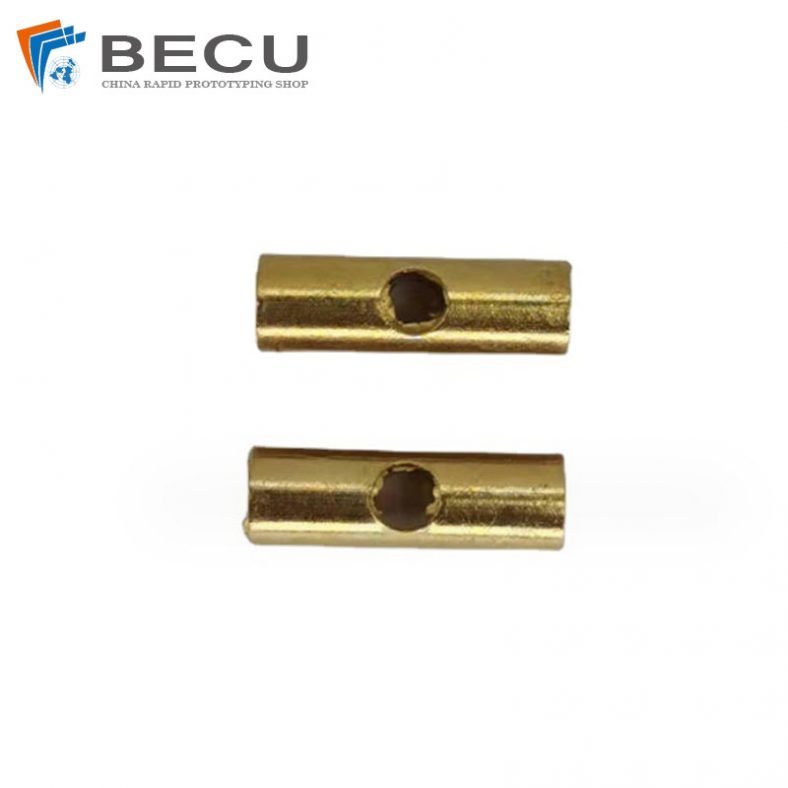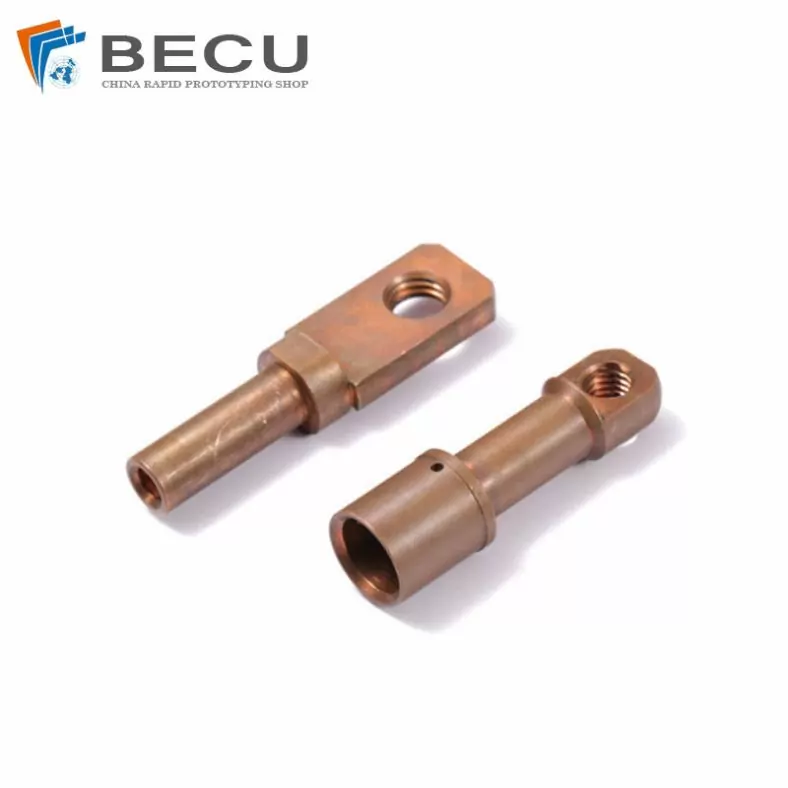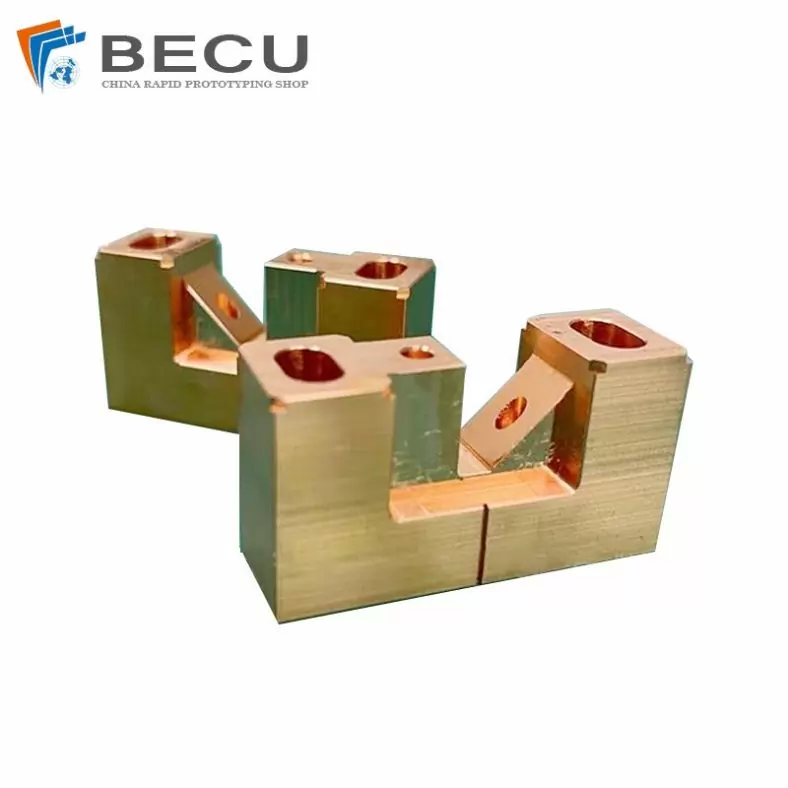In today’s automotive landscape, where vehicles are becoming increasingly advanced, interconnected, and electronically driven, the importance of reliable and high-performance automotive connectors cannot be overstated. These connectors serve as the vital link between various electronic components, ensuring seamless communication and operation within the vehicle’s intricate systems. At the heart of these connectors lie machined components that play a pivotal role in ensuring precision, reliability, and overall performance. This article delves into the world of machined components for automotive connectors, exploring their significance, manufacturing processes, materials, and future trends.

The Significance of Machined Components
Automotive connectors are essential for establishing electrical connections between various vehicle components, such as sensors, actuators, control units, and communication systems. They facilitate data exchange, power distribution, and control, enabling functionalities ranging from engine management to infotainment systems. Automotive Machined components within these connectors are critical to their overall performance, ensuring low resistance, minimal signal loss, and high durability.
Their precision manufacturing process allows for tight tolerances and consistent contact points, which are imperative for maintaining optimal electrical connections, especially in environments characterized by vibrations, temperature fluctuations, and exposure to harsh conditions.
Manufacturing Processes for Machined Components
Precision Machining
Precision machining is a key manufacturing process used to create machined components for automotive connectors. This process involves removing material from a workpiece to achieve the desired shape, size, and surface finish. Computer Numerical Control (CNC) machines play a central role in precision machining, as they enable automated and highly accurate cutting, drilling, and shaping of various materials, including metals and plastics. CNC machining ensures that connector components are manufactured to exact specifications, resulting in consistent performance and reliability.
Wire EDM (Electrical Discharge Machining)
Wire EDM is another critical process employed in the production of machined components. It is particularly useful for creating intricate shapes and contours in hard and conductive materials. In this process, a thin wire electrode is guided along a predefined path, and electric discharges between the electrode and the workpiece erode the material to create the desired shape. Wire EDM allows for high precision and intricate detailing, making it suitable for manufacturing complex connector pins and sockets.
Injection Molding
Injection molding is commonly used for manufacturing connector housings and insulators. This process involves injecting molten material into a mold cavity, where it solidifies to form the desired shape. Plastic Injection molding is efficient for creating large quantities of uniform components, and it offers design flexibility and cost-effectiveness. High-quality molds are crucial for maintaining consistent tolerances and surface finishes in the produced components.
Materials Utilized
Metals
Various metals are employed in the manufacturing of metal cnc machined components for automotive connectors due to their conductivity, durability, and mechanical strength. Copper and its alloys, such as brass and bronze, are preferred choices for connector pins and sockets. These metals exhibit excellent electrical conductivity and corrosion resistance, ensuring reliable signal transmission. Additionally, certain connector parts might be plated with materials like gold or silver to enhance conductivity and prevent oxidation.
Plastics
Plastics play a vital role in connector manufacturing, primarily for insulating components and housings. Thermoplastics like polyamide (Nylon), polypropylene, and polycarbonate are commonly used due to their electrical insulation properties, light weight, and ease of molding. These plastics also offer design versatility, allowing for complex shapes and features that contribute to the overall functionality of the connector.
Ceramics
In applications where high-temperature resistance and superior mechanical properties are required, ceramics come into play. Ceramic machined components are used in connectors that operate in extreme conditions, such as engine compartments or exhaust systems. Alumina ceramics, for instance, exhibit excellent thermal conductivity and electrical insulation, making them suitable for applications demanding reliability under extreme temperature variations.
Ensuring Reliability and Performance
The reliability of automotive connectors heavily relies on the precision and quality of their machined components. Poorly machined components can lead to increased resistance, signal degradation, and even connection failures. To ensure optimal reliability and performance, manufacturers implement stringent quality control processes. These processes involve meticulous inspection of components for dimensional accuracy, surface finish, and overall conformance to specifications.
Additionally, advanced testing methods, such as environmental testing (exposing connectors to temperature, humidity, and vibration variations), mechanical testing (evaluating connector durability under stress), and electrical testing (measuring signal integrity and resistance), are carried out to validate the connectors’ performance in real-world scenarios.
Future Trends and Innovations
As the automotive industry continues to evolve, several trends and innovations are shaping the landscape of machined components for automotive connectors:
1. Miniaturization and High-Density Connectors
As vehicles become more complex and space-constrained, the demand for miniaturized connectors with high pin densities is increasing. This trend necessitates the development of advanced machining techniques that can achieve intricate designs in smaller form factors.
2. Enhanced Materials
Advancements in material science are leading to the discovery of new materials with improved electrical and mechanical properties. These materials could revolutionize connector manufacturing, allowing for higher performance and reliability, especially in demanding environments.
3. Industry 4.0 and Smart Manufacturing
The integration of Industry 4.0 principles, such as IoT-enabled sensors and real-time data analysis, into connector manufacturing processes can lead to improved quality control, predictive maintenance, and overall process efficiency.
4. 3D Printing/Additive Manufacturing
Although still in its early stages for automotive connectors, 3D printing has the potential to transform manufacturing by enabling rapid prototyping and customized designs, while also reducing material waste.
5. Sustainability
The automotive industry’s growing focus on sustainability extends to connector machining and manufacturing. Using recyclable materials, reducing energy consumption during production, and optimizing manufacturing processes for minimal waste are becoming increasingly important.
Conclusion
In the intricate web of modern automotive systems, machined components for automotive connectors are the unsung heroes that ensure seamless communication, power distribution, and control. These components, manufactured with precision and attention to detail, underpin the reliability, performance, and safety of vehicles. As the automotive industry continues to innovate, the evolution of machined components will play a crucial role in shaping the future of automotive connectivity, electrification, and automation. With advancements in manufacturing processes, materials, and design, the journey towards smarter, more efficient, and sustainable automotive connectors is well underway.




